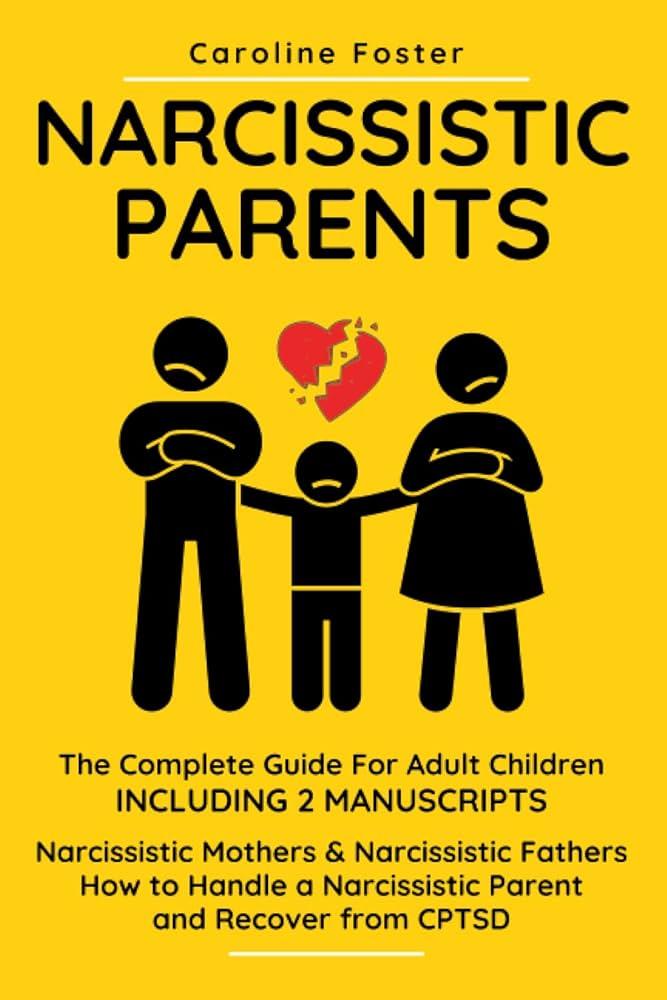Parenting is a journey filled with love, challenges, and growth. Yet, sometimes the lines between guidance and control can blur, especially when narcissistic tendencies subtly shape the way a parent interacts with their child. Recognizing narcissistic parenting isn’t always straightforward—it can be masked by charm, concern, or even what seems like dedication. In this article, we’ll gently explore the signs that may indicate narcissistic patterns in parenting, helping you understand and navigate these complex dynamics with compassion and clarity. Whether you’re reflecting on your own experiences or seeking awareness for someone you care about, this guide aims to shed light without judgment, opening the door to healing and healthier relationships.
Table of Contents
- Understanding the Subtle Behaviors Behind Narcissistic Parenting
- Recognizing Emotional Manipulation Without Blame
- How Narcissistic Traits Affect a Child’s Self-Esteem
- Practical Steps to Protect Your Wellbeing and Set Healthy Boundaries
- Insights and Conclusions
Understanding the Subtle Behaviors Behind Narcissistic Parenting
Behind the charm and confidence that some parents exude lies a complex web of behaviors that can subtly influence their children’s emotional development. These behaviors often go unnoticed because they don’t shout—rather, they whisper through everyday interactions. For example, a narcissistic parent might expect their child to meet their emotional needs rather than providing support in return. This reversal sets a stage where the child feels responsible for their parent’s happiness, which can lead to confusion and emotional exhaustion over time.
Other gentle signs include a persistent need to control the narrative and diminish the child’s achievements unless they directly reflect well on the parent. This might look like downplaying milestones or focusing conversations back to the parent’s experiences. Subtle as these actions may be, they chip away at a child’s self-esteem and sense of autonomy. Being aware of such behaviors helps in recognizing the patterns and gently addressing the impact they may have on children’s lives.
- Consistent emotional manipulation disguised as concern
- Expectation for children to prioritize parent’s needs above their own
- Frequent redirecting of conversations to highlight the parent’s role
- Undermining or minimizing a child’s successes or feelings
Recognizing Emotional Manipulation Without Blame
Understanding the tactics used in emotional manipulation can feel overwhelming, but it’s important to approach this awareness with kindness toward yourself and others. Emotional manipulation often presents subtly, wrapped in concern or affection, making it difficult to identify without judgment. Recognizing behaviors like gaslighting, guilt-tripping, or passive-aggressiveness is not about blaming a parent or caregiver, but rather about proving clarity for your own emotional wellbeing.
Here are gentle signs to watch for that may indicate emotional manipulation in a caregiving relationship:
- Inconsistent affirmations: Compliments or praise given only when you meet specific expectations.
- Emotional withholding: Using silence or withdrawal as a form of punishment.
- Playful criticism that stings: Comments disguised as jokes that undermine your confidence.
- Overstepping boundaries: Dismissing your feelings while insisting their version of reality is the only truth.
By identifying these signs thoughtfully, you equip yourself with the power to set healthier boundaries without casting blame, fostering a path of understanding and healing.
How Narcissistic Traits Affect a Child’s Self-Esteem
Children raised in environments where narcissistic traits dominate often find their budding self-worth entwined with unrealistic expectations and conditional approval. The constant need to please the narcissistic parent can lead to feelings of inadequacy, as the child learns that love and attention are earned, not freely given. This environment stifles authentic self-expression, replacing it with a hidden reservoir of self-doubt and anxiety. Over time, even simple achievements might be overshadowed by the relentless pressure to exceed ever-shifting standards, leaving the child trapped in a cycle of striving but never truly feeling valued.
Subtle patterns such as:
- Lack of genuine praise, replaced by criticism or backhanded compliments
- Emotional neglect disguised as tough love, pushing the child to suppress feelings
- Excessive comparisons with siblings or peers, fostering unhealthy competition
- Invalidation of experiences and emotions, teaching children to question their own reality
can quietly chip away at the child’s confidence, creating emotional scars that may take years to heal. Recognizing these gentle signs early allows caregivers and allies to intervene, helping children reclaim their sense of worth and belonging.
Practical Steps to Protect Your Wellbeing and Set Healthy Boundaries
Creating and maintaining personal boundaries is essential when dealing with narcissistic parenting. Start by identifying your emotional limits—what makes you feel uncomfortable or drained—and give yourself permission to say no without guilt. Practice assertive communication by using “I” statements to express your needs clearly, such as, “I feel overwhelmed when my feelings are dismissed.” Remember, setting boundaries isn’t about changing the other person but protecting your own mental and emotional health.
Furthermore, prioritize self-care rituals that nurture your wellbeing. This might include:
- Engaging in daily mindfulness or meditation to stay grounded
- Seeking support from trusted friends, therapists, or support groups
- Establishing tech-free time to disconnect and recharge
- Journaling to process emotions and track personal growth
Trust your intuition when a behavior feels harmful, and don’t hesitate to step back when necessary. By consistently honoring your boundaries and prioritizing self-care, you can reclaim your sense of self and inspire healthier dynamics in your relationships.
Insights and Conclusions
Recognizing the subtle signs of narcissistic parenting can be challenging, especially when love and care often come wrapped in complicated behaviors. But understanding these gentle cues is a crucial step toward healing and setting healthier boundaries—for yourself and future generations. Remember, awareness is not about assigning blame but about reclaiming your sense of self and finding compassion for both your journey and those involved. If this article resonated with you, know that you’re not alone, and support is always within reach. Here’s to embracing growth, self-love, and the gentle strength it takes to rewrite our stories.

